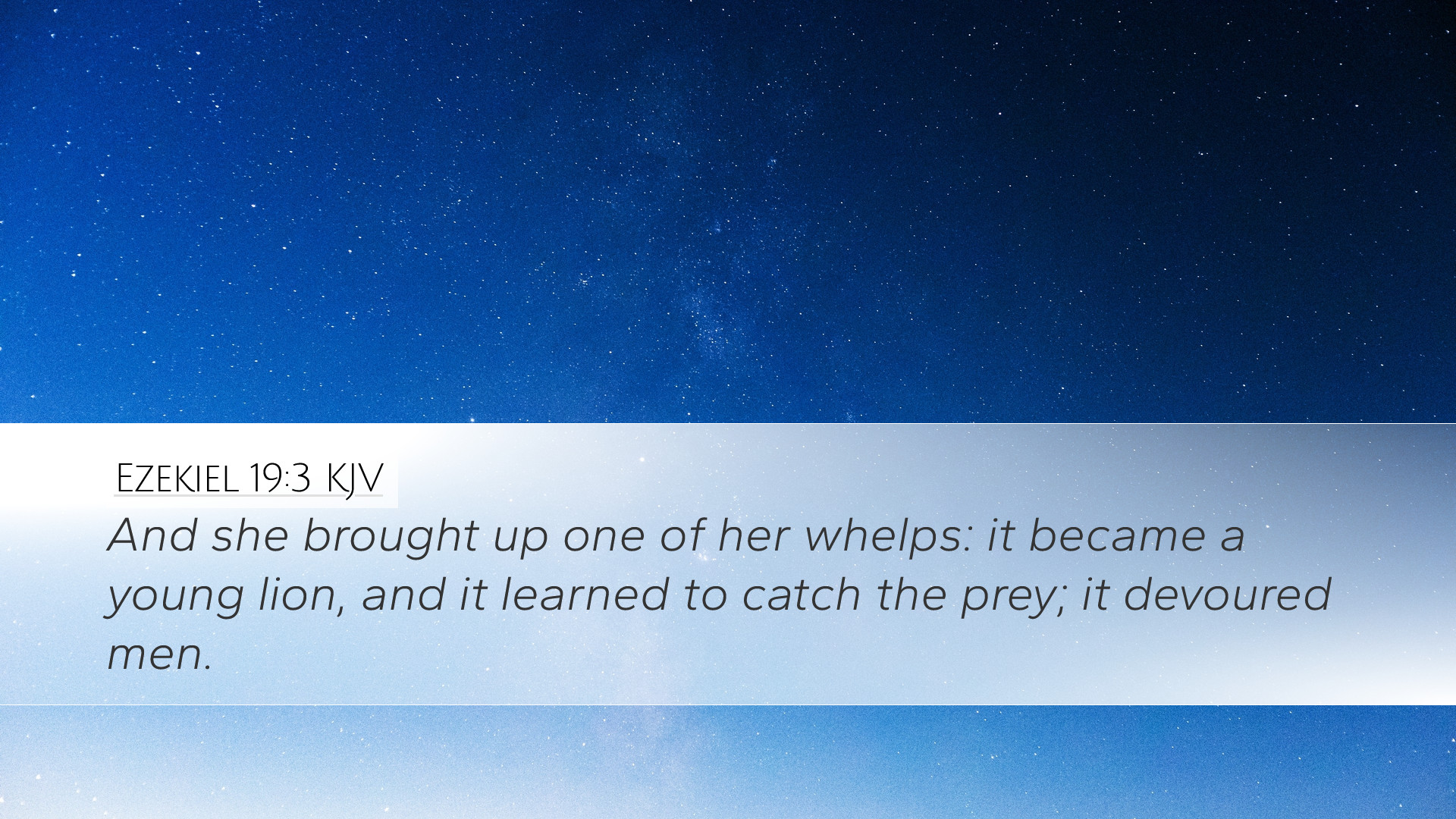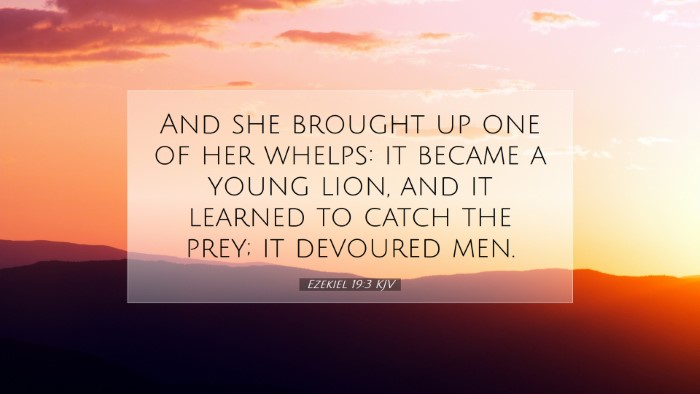Ezekiel 19:3 Commentary
Bible Verse: "And she brought up one of her whelps; it became a young lion, and it learned to catch the prey; it devoured men."
Introduction
The verse Ezekiel 19:3 encapsulates a profound message through the vivid imagery of a lion cub learning to hunt and thrive. Commentators such as Matthew Henry, Albert Barnes, and Adam Clarke explore not only the immediate implications of this imagery but also its theological significance within the context of Israel’s history and prophetic messages.
Imagery of the Lion and Its Significance
The lion serves as a powerful metaphor throughout Scripture, often representing strength, majesty, and royalty. In this context, the lion symbolizes the Davidic line and the kingdom of Judah:
- Matthew Henry: Observes that the lion signifies the regal aspect of the kings of Judah, emphasizing their power and authority.
- Albert Barnes: Notes that the term “whelp” refers to a young lion, hinting at the emergence of a new leader from Judah, possibly alluding to King Jehoiachin or the Messiah.
- Adam Clarke: Highlights the educational process of the young lion as it learns to hunt, symbolizing the preparation of leaders in Judah who were raised to conquer their enemies.
Thematic Elements in the Verse
This verse is rich with themes that resonate throughout the biblical narrative, particularly regarding leadership, divine judgment, and the fate of nations:
- Leadership and Kingship: The young lion represents the kings who were to lead Israel, showcasing the transition from powerlessness to power.
- Divine Instruction: The process of learning to catch prey symbolizes God's educational work in raising leaders who fulfill His purposes.
- Judgment Against Nations: The consumption of men illustrates the consequences of sin and the downfall of the nation due to its rebellion against God.
Context of Ezekiel 19
To fully grasp the meaning of Ezekiel 19:3, it is essential to consider the broader context of the chapter, which serves as a lament over the royal family of Judah:
- The Levitical Lament: Ezekiel, as a prophet, often spoke in lamentations, and here he is grieving the loss of Israel’s leadership.
- Symbolic Representation: The chapter uses the metaphor of a lion and its whelps to represent the kings and their offspring, portraying how they were once strong and mighty but have now fallen from grace.
The Role of Prophecy
Prophecy in the Old Testament served not merely as a foretelling of events but also as a moral and spiritual correction:
- Matthew Henry: Suggests that prophetic literature encourages reflection on divine judgement, urging the people to turn back to God.
- Albert Barnes: Emphasizes that the prophecy serves as a call to repentance, reminding the people of the consequences of their actions.
- Adam Clarke: Points out that the lamentation itself is a demonstration of God’s sorrow over the inevitable consequences of disobedience.
Theological Reflections
The thematic exploration of Ezekiel 19:3 leads to critical theological reflections:
- The Nature of God: This verse underscores God's sovereignty in raising leaders and enacting judgment.
- Human Responsibility: The learning process of the young lion alludes to the necessity for human beings to be accountable and prepared for their roles.
- Hope Amid Judgment: Even within the sorrow of judgment, there remains a thread of hope as one considers the potential for future restoration.
Conclusion
Ezekiel 19:3 serves as a poignant reminder of the complexities of leadership, divine purpose, and the dire consequences of straying from God’s ways. For pastors, students, theologians, and scholars, it invites deep engagement with the rich tapestry of biblical imagery and the character of God who raises and judges His leaders. The call to acknowledge sin, the necessity of spiritual education, and the hope for restoration resonate through this stirring verse.


